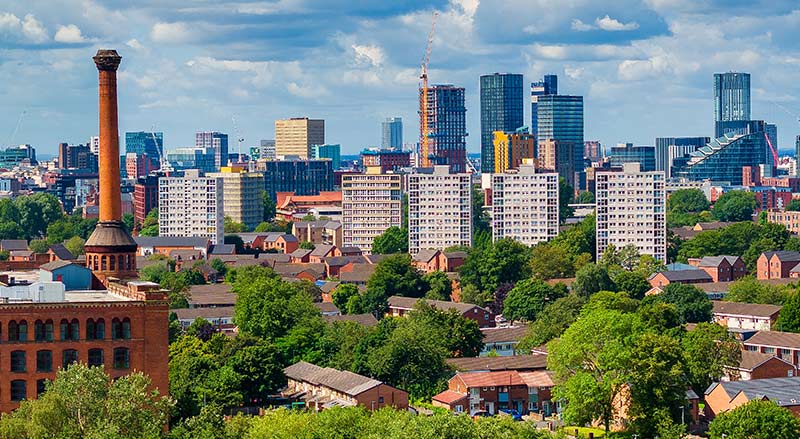Fighting inequalities and changing lives at home and abroad
Across the world, and in our own city of Manchester, inequalities exist across food, healthcare, infrastructure and resources. Our researchers are dedicated to exploring the roots of inequality and co-creating sustainable solutions across its many aspects, from poverty to social justice, living conditions and equality in the workplace.
We bring together the best minds in medicine, business, law, social sciences and the arts to listen, collaborate and help to change the lives of communities at home and worldwide. Our approach involves actively engaging with and listening to communities, working together to instigate positive transformations in the lives of people both locally and globally.
Our research covers
Exploring and understanding how a person’s identity from age, to gender, race, disability and LGBTQ+ status, can determine experiences of inequality. Through research we look to tackle these inequalities within and between groups.
Research addressing how environmental factors, including healthcare systems, access to resources, food insecurity, cost of living, education, history and memory, shape the inequalities people face.
Examining the factors that prevent people from participating in decisions that affect their lives and creating solutions through arts and culture, listening, collaborating and changing policy.
Conducting research that is rooted in experience and tied to practical solutions that make a real difference such as training, capacity building and support for policymakers and practitioners working to alleviate inequalities.
Key institutes
Events
-

Interdisciplinarity &: 2026 Series - Leadership & Team Building: Challenge-Led Hackathon
11 February 2026, 2pm-4pm
In a vast university setting, bringing together interdisciplinary researchers to tackle complex challenges is essential. These teams combine expertise from various fields, focusing.. -

Beyond Borders: Rethinking Migration and Citizenship - Bridget Anderson
12 February 2026, 3.30pm-5pm
Please join us for the University of Manchester Sociology Annual Lecture 2026, followed by a drinks reception. About the lecture The University of Manchester Sociology Annual Lect..
Connect with us
For business
- Leverage our expertise, facilities and network to develop solutions to your challenges.
- Gain access to some of the brightest minds working across our research pathways to help you make change happen.
For policy work
- Connect with our researchers to build relationships, explore areas of interest and enhance your understanding of pressing policy challenges.
- Access high quality policy articles and publications from our academics.
Search our research database
- Use Research Explorer to access publications, activities and more.
- Search researcher profiles and connect with fellow experts.
General enquiries
Speak to our research beacons team who can help connect you with the expert you're looking for.
Research at Manchester
Find out more about the breadth and depth of research at our University.









